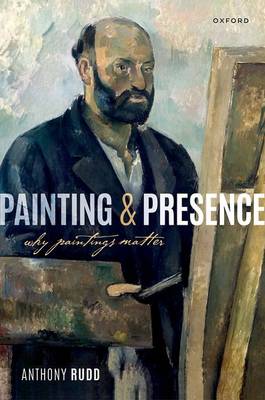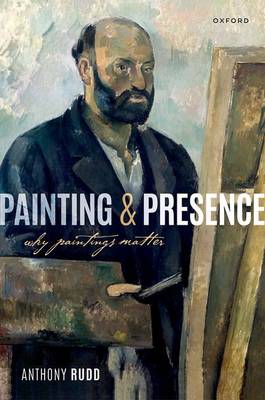
- Afhalen na 1 uur in een winkel met voorraad
- Gratis thuislevering in België vanaf € 30
- Ruim aanbod met 7 miljoen producten
- Afhalen na 1 uur in een winkel met voorraad
- Gratis thuislevering in België vanaf € 30
- Ruim aanbod met 7 miljoen producten
Zoeken
Omschrijving
This book is concerned with why (or whether) paintings have value: why they might be worth creating and attending to. The author starts from the challenge expressed in Plato's critique of the arts generally, according to which they do not lead us to what is true and good, and may take us away from them. Rudd tries to show that this Platonic Challenge can be answered in its own terms: that painting is good because it does lead us to truth. What paintings can give us is a non-discursive "knowledge by acquaintance" in which the essence of the painting's subject-matter is made present to the viewer. Rudd traces this understanding of painting as ontologically revelatory from the theology of the Byzantine Icon to classical Chinese appreciations of landscape painting, to the work of Merleau-Ponty and other Phenomenologists inspired by European Modernist art. He argues that this account of painting as disclosing the essences of things can also take up what is right about expressive and formalist theories of painting; and that it can apply as much to abstract as to representational painting. But to disclose the reality of things can only be of value if the reality disclosed is itself of value; and in the concluding part of the book, Rudd argues that the value of painting can only be properly understood in the context of a wider metaphysics or theology in which value is understood, not as a human projection, but as a basic characteristic of reality as such.
Specificaties
Betrokkenen
- Auteur(s):
- Uitgeverij:
Inhoud
- Aantal bladzijden:
- 256
- Taal:
- Engels
Eigenschappen
- Productcode (EAN):
- 9780192856289
- Verschijningsdatum:
- 18/11/2022
- Uitvoering:
- Hardcover
- Formaat:
- Genaaid
- Afmetingen:
- 163 mm x 226 mm
- Gewicht:
- 544 g

Alleen bij Standaard Boekhandel
+ 232 punten op je klantenkaart van Standaard Boekhandel
Beoordelingen
We publiceren alleen reviews die voldoen aan de voorwaarden voor reviews. Bekijk onze voorwaarden voor reviews.











